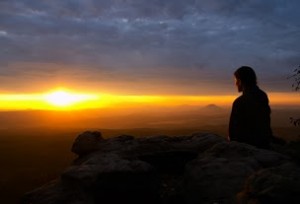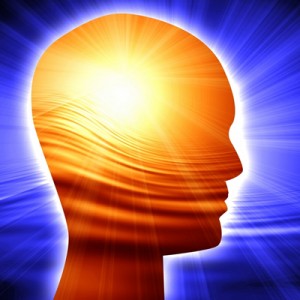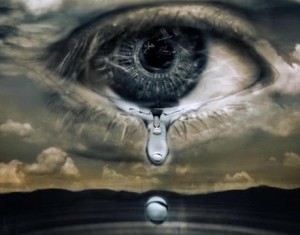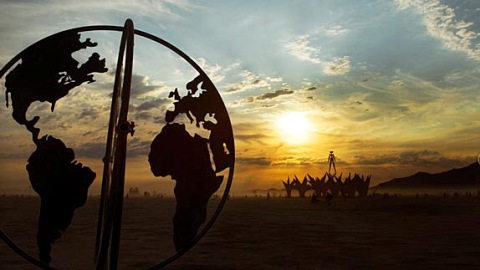A friend writes to express a conundrum many people are grappling with these days, touching on a philosophical inquiry that rather obsessed my youth until I gained sufficient insight into the question. Where did man go wrong?
 Having more than a passing acquaintance with meditative states, this fellow expresses the view that in deeper state of meditation, there is only the awareness of undivided wholeness, and with it holiness (the two words have the same root).
Having more than a passing acquaintance with meditative states, this fellow expresses the view that in deeper state of meditation, there is only the awareness of undivided wholeness, and with it holiness (the two words have the same root).
Echoing a theme one finds in mystical literature from all traditions, my friend said, “there is only THAT— which I take to mean there is only the sacred, or Intelligence—and that “what is is sacred.”
Then comes the hard question, which he too facilely answers, albeit rhetorically: “And you are saying that ‘thought is not sacred.’ So is thought not included in what is? If there is only THAT then how can parts of life be sacred and others not?”
In other words, the claim that ‘man went wrong’ at some point is false, because it doesn’t follow logically from the premise that wholeness and intelligence permeate the universe. The idea that man went wrong must be a mistake, because man evolved in nature out of the cosmic background like all other life, which unfolds in seamless order.
Driving his point home, this fellow states: “If there is an intelligence which is the source or ground of all life then could there be any mistake except if we are looking from a limited point of view?”
This line of thinking is a logical fallacy. Because nature unfolds as a seamless whole does not mean evolution cannot make mistakes.
More to the point, the fact is that the increasingly fragmentary tendencies of Homo sapiens run counter to the undivided wholeness of nature. Of course, man may not be an evolutionary ‘mistake’ at all, but our species has gone and is going wrong. It’s up to us to understand how and why.
Put in the simplest terms, I feel the right question is: How did the disorder of man arise from the order of nature?
Of course, if you deny the disorder of man, or believe that chaos is the background condition of the cosmos and nature, the question is meaningless. But both of those positions are completely untenable.
nature, the question is meaningless. But both of those positions are completely untenable.
Many transformation-oriented people attempt to shortcut the dilemma by saying that it doesn’t actually exist. The crisis of human consciousness is simply erased and effaced at a higher level. Intelligence is just at work in a different way with man, and we have to trust in it.
Trust is essential, but it has to be rightly placed, whether with other people or a higher power. That’s where discernment comes in. Without discernment, one is just a believer, or a fool.
But as my friend cogently added in a follow-up letter: “What we are facing is potentially the death of the planet and the human race as we know it. There is huge denial about death itself, and perhaps even more so when it is on such a large scale with such huge implications.”
The belief that humankind is essentially heading in the right direction, rather than generating more and more darkness, seems to be one of the hardest things for people to face. One would think that local or regional crises would take precedence. But they no longer do, and as my BC friend said, the implications are huge.
Of course, as humans we tend to take everything personally, even and perhaps especially the greatest crisis our species has ever faced. However, looking at things in terms of self is a very different orientation than seeing that the macrocosm is enfolded within the microcosm, that the whole exists within each individual. The question becomes, can ordinary people face and hold the crisis of consciousness as a whole within their portion of consciousness?
I feel we can, since we’re capable of much greater things as human beings than we normally believe. Besides, we’re overwhelmed in looking at things partially anyway. What do we have to lose, except some of our we-all-live-in-our-separate-little-worlds burdens?
Denial of the totality of the crisis is no doubt a main reason there’s such a huge market for so-called spiritual teachers now, people more than willing to tell other people what they want to hear from a purportedly illumined place. The very existence of so many New Age teachers seems to indicate that a blossoming is occurring, but no flowering has actually begun.
Not that a preparation for psychological revolution isn’t occurring in serious, self-knowing people across the planet. We just can’t fool ourselves that it is already happening, or that it will somehow spontaneously combust, or that it isn’t necessary after all.
Consciousness cannot change by imagining what one wants it to be, or by working toward an ideal, nor by believing man is changing when he’s not. Things can only change when we see the world and ourselves as we are, and attend to what is, thereby allowing insight and understanding to grow within us.
 As to where man went wrong, my proposed insight is that the evolution of symbolic thought, based as it is on the ability to consciously remove and manipulate ‘things’ in the environment, is what made man the most dominant species on the planet by far.
As to where man went wrong, my proposed insight is that the evolution of symbolic thought, based as it is on the ability to consciously remove and manipulate ‘things’ in the environment, is what made man the most dominant species on the planet by far.
But symbolic thought carries with it the strong tendency to fragment, and man is fragmenting the planet all to hell. Abetted by science and unabated by deepening insight, self-made fragmentation has generated an increasing ecological crisis and an implacable crisis of consciousness itself. That may be driving the awakening of insight and the transmutation of the individual and the species.
Thus the future of humanity has become a race between the fragmenting momentum of the past and the latent potential for wholeness in the present.
So, beyond all the denial and wishful thinking, is a preparation actually taking place, and can the revolution that changes the basic course of humankind occur now?
It’s very difficult to see whether a minority of people is awakening. One can’t even be entirely sure about oneself. There is certainly no evidence of widespread individual awakening, much less an imminent creative explosion of insight.
But the darkest hour may truly be before the dawn. Or there may be no dawn in the foreseeable future.
All one can do is the spadework within oneself on a daily basis, without falling into the trap of self-absorption. Asking and holding the larger questions helps.
Martin LeFevre

